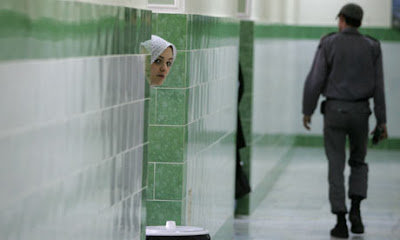SILENT VOLCANO
For almost three decades the children of this land have been relentlessly suppressed by the Iranian regime and this continuous repression has been carried out in the name of God. For nearly thirty years people have silently witnessed injustice and oppression for the sake of religion. All facets of people’s life have been constantly subjected to monitoring and supervision. The government has explicitly instructed the general public especially women how to dress or otherwise be prepared for punishment. Similar codes of conduct extended to other aspects of life such as music, movies, books, newspapers and even speeches. This absolute authoritarian approach of the regime overshadowed all forms of civil liberty beyond what anyone could have imagined.
During Khatami’s presidency, from 1997 to 2005, concepts such as; freedom of expression, citizens’ rights and liberalisation were advocated by him and his ministers. There was a window of opportunity for journalists, civil rights campaigners, film makers and public speakers to follow their long desired dreams. Interestingly and despite all the criticism, nobody even tried to undermine the religious authority of the regime. However, the whole society became aware of the importance of distinguishing between political and religious boundaries in the context of freedom. It did not last. It did not last because of the existence and power of some narrow minded politicians who see themselves as the guardians of the whole nation’s values. All those shining dreams faded away when Khatami and his ministers completed the term of office. As soon as they left and even shortly before that those who had enjoyed the freedom and expressed their ideas were arrested and put behind bars. The whole nation once again was confronted with the consequences of mental darkness and ignorance.
Ahamadinejad who has so far managed to disgrace one of the oldest nations on the face of the earth became the president of Iran. He has established a system of terror and intimidation among the general public especially those who believe in the necessity of fundamental reform. The last five years will always be remembered for being the darkest chapter of the history of Iran. However, the sequence of the post-election events, regardless of the possible outcome, has made one thing crystal clear; the country’s circumstances as well as the people’s attitude towards their politicians have irreversibly changed. After many years, now the whole nation is recognising it’s potential. They are neither afraid of the system nor ready for any compromise. The courage and bravery of ordinary people have revealed the greatest of all virtues of this nation. This “stream of people” may flow slowly or swiftly according to events and circumstances but it is not stoppable. It is only a matter of time when people decide to break through the thin crust over the volcano of revolution.
Shahin M




























